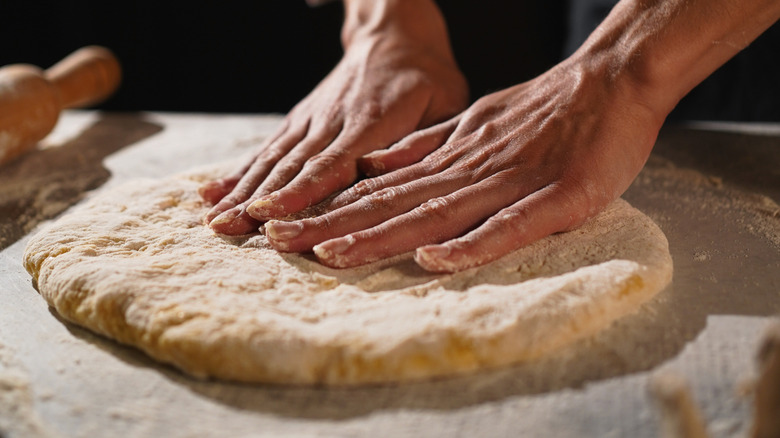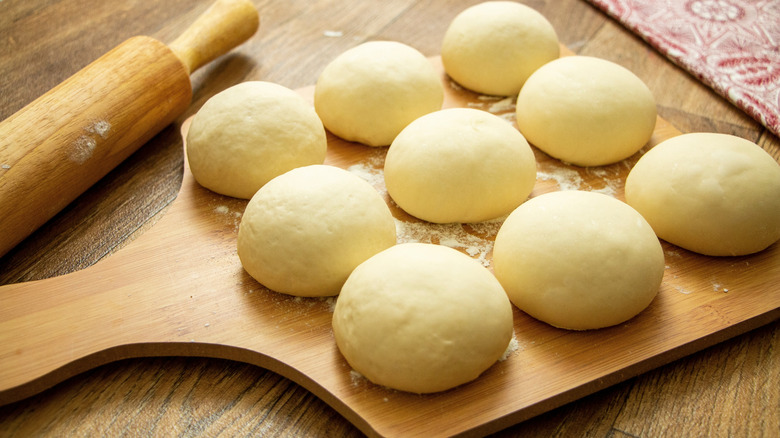The Best Type Of Flour To Use When Making Homemade Pizza Dough
Once you've learned how to make pizza dough from scratch, you realize that the flour you choose determines every other step — from forming the dough to deciding how hot the oven needs to be. While 00 is a famously wonderful flour, Serhan Ayhan, pizza consultant to Krave It (home of the Dubai chocolate dessert pizza), actually recommends all-purpose flour for homemade doughs.
"Many are familiar with 00 flours and the soft Neapolitan pizzas that are made from them," Ayhan says. "Having said that, the results of a typical Neapolitan pizza made from 00 flour can be difficult to replicate in a home oven without the right tools on hand."
The darling of Italian pizzerias, Neapolitan pizza chefs create a thin, soft crust using 00 flour in 900-degree Fahrenheit ovens. Unfortunately, most home ovens can't reach such high temperature, so Ayhan instead recommends all-purpose flour to produce a New York-style crust that is both crispy and chewy — making it the best choice for homemade pizza dough.
He explains that these New York-style pizzas are "baked in deck ovens at a relatively lower temperature for a longer period of time," which is far more practical for home chefs. All-purpose flour is more coarsely ground and has a higher protein content, two factors that contribute to its distinct texture. For those die-hard Neapolitan pizza enthusiasts, however, Ayhan offers tips on how to recreate a thin, light crust using all-purpose flour.
How to make pizza dough with all-purpose flour
An all-purpose flour Neapolitan pizza dough requires a few adjustments to the classic recipe. It won't taste quite the same, but it'll be as close as you can get without investing in a specialty oven.
"Considering that pizzas made from many 00 flours are softer, I would suggest a wetter dough made from all-purpose flour [add 5 to 10% of your typical amount of water] to get this type of result," Serhan Ayhan advises. Increased hydration not only softens the final product but also makes the dough stretchier, allowing you to spread it thinner before cooking. You'll still need to apply the temperature tricks to stretch pizza dough correctly, but tearing will be less of an issue.
That said, doughs with more protein can still be challenging to work with. The glutenin and gliadin proteins, even after being broken down through fermentation, cause the dough to resist stretching and retain its initial shape. "A small amount of olive oil can also make the dough softer and more pliable, while aiding in crust coloring," Ayhan suggests.
Olive oil has the added benefit of creating a hydrophobic layer that prevents the dough from becoming soggy as it cooks. While it allows water from the dough to escape as steam, it also prevents moisture from the sauce from penetrating the crust and compromising its texture.


